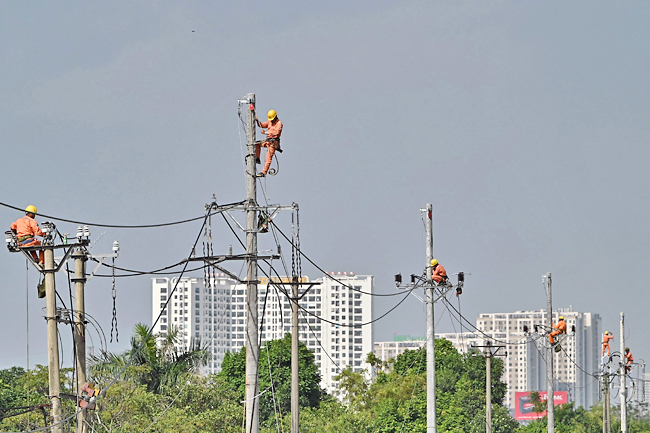ASEAN’s future tilts nuclear-powered as it eyes 5.2GW nuclear plants by 2040
The trajectory of the ASEAN region appears to be steering towards a nuclear-powered future, driven by the imperative to meet the escalating energy demands of the region.
This prospective shift gains substantial clarity with the recent formalisation of a comprehensive five-year memorandum of understanding (MoU) between the ASEAN Centre for Energy (ACE) and the Global Centre for Nuclear Energy Partnership (GCNEP).
This strategic collaboration is aimed at advancing the goals outlined in the ASEAN Plan of Action for Energy Cooperation (APAEC) 2016-2025 Phase II: 2021-2025.
The APAEC 2016-2025 Phase II: 2021-2025 builds on the success of APAEC 2016-2025 Phase I: 2016-2020 and sets out ambitious targets and initiatives to enhance energy security and sustainability. It also supports the United Nations Sustainable Development Goal 7 (UNSDG).
The MoU signing took place at the ASEAN Headquarters in Jakarta, Indonesia, between Executive Director of ACE Dr Nuki Agya Utama and Ambassador of India to ASEAN Jayant N Khobragade. The signing ceremony was witnessed by Deputy Secretary-General of ASEAN Economic Community for 2021-2024, Satvinder Singh.

As the demand for energy continues to surge, there is a collective acknowledgment among the ASEAN member states that a judicious incorporation of nuclear power can play a pivotal role in meeting these exigencies while mitigating environmental impacts.
“Undoubtedly, nuclear energy stands as a clean energy source capable of addressing the growing energy needs of the ASEAN region,” Dr Nuki said in a statement.
The MoU with GCNEP, he explained, will concentrate on programme area 7 of the APAEC Phase II; Civilian Nuclear Energy, which is directed towards enhancing both regulatory and technical capacities in the realm of nuclear energy.
This strategic focus aims to foster greater public comprehension of nuclear power generation within the ASEAN region and fortify regional collaboration on nuclear energy initiatives.
For his part, Khobragade highlighted the peaceful uses of nuclear energy and technologies developed by India’s Department of Atomic Energy in the field of agriculture, health and other industrial applications, which could be of interest to the ASEAN.
“The GCNEP-ACE partnership is hoped to contribute to the energy landscape in ASEAN, with a focus on sustainable nuclear energy solutions,” he said.
According to the 7th ASEAN Energy Outlook, nuclear energy stands out as a pivotal clean energy source poised to address the escalating energy demands of the ASEAN region.
The strategic alignment with APAEC’s regional objectives in the power sector foresees the deployment of approximately 5.2 gigawatts of nuclear power plants in the 2040s, promising enhanced energy output and reduced costs for electricity generation.
The MoU also harmonises with the priorities of both ASEAN member states and India, as outlined in the Joint Statement on ASEAN-India Comprehensive Strategic Partnership and Annex to the ASEAN-India Plan of Action (2021-2025).
It underscores the commitment to collaborative efforts in alternative energy sources, including civilian nuclear energy and clean energy, with a shared objective of ensuring energy security for the present and future generations.

The MoU will facilitate cooperation in diverse areas including advanced nuclear energy systems, nuclear security and safety, physical protection systems, applications of radioisotopes and radiation technologies, radiation protection and monitoring, and other mutually agreed-upon domains.
The envisioned objectives will be realised through joint initiatives such as research endeavours, lectures, seminars, and workshops. – Wardi Wasil



